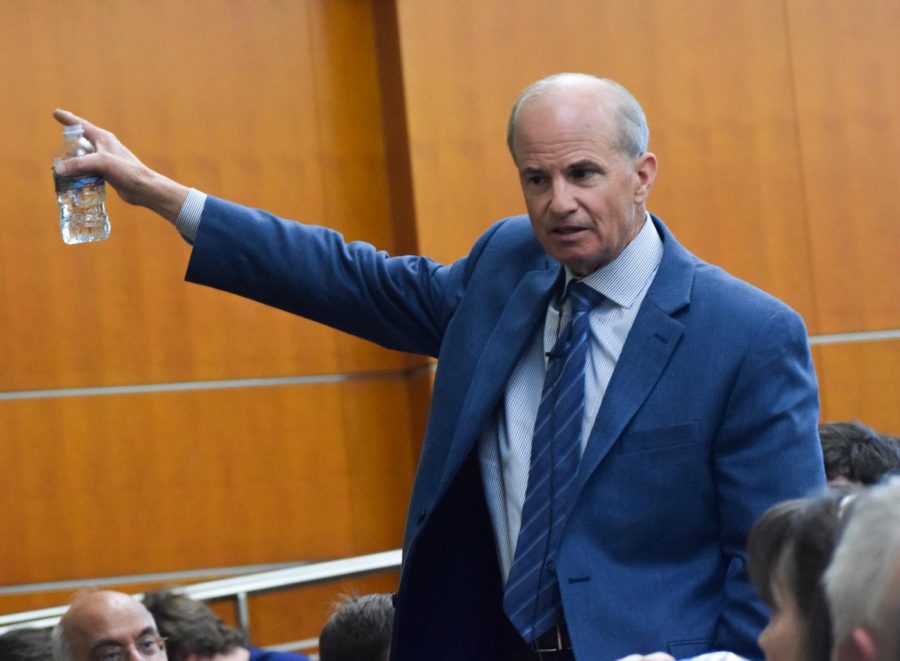Visiting general discusses nuclear deterrence
Retired general said most countries act in their own self-interest
MICHAEL LINDER | THE DAILY EVERGREEN
Retired General Kevin Chilton discusses how the world would be much safer if the U.S. keeps and maintains its current nuclear stockpile.
April 9, 2018
Retired U.S. Air Force four-star general and astronaut Kevin Chilton discussed in a Foley Distinguished Lecture on Monday how nuclear weapons are part of a dangerous arsenal that will jeopardize the world.
Chilton defined the term “deterrence” as persuading an adversarial decision-maker not to take a particular action that one believes is harmful to one’s national interest.
“You want to convince them not to do something that you don’t want them to do,” Chilton said.
He said when he talks to young officers and enlisted troops in the Air Force or other services, he likes to remind them that their highest calling is not to fight to win the nation’s wars. He believes the highest calling is to deter warfare.
“Fighting wars is no fun,” Chilton said. “People die. Americans lose their lives.”
Chilton said to apply this goal, one has to ask oneself who to deter and what to deter them from doing.
“And the who is very important because it’s important to analyze how people make decisions,” he said.
Chilton said one of the greatest mistakes Americans make, particularly in national security, is that they mirror-image everyone.
“We think everybody in the world must think the way we think because we’re so logical,” Chilton said. “But it’s not true. Their perspective is equally logical to them, even when it’s 180 degrees out from our perspective. And it’s important to study people that you want to deter and understand how they think.”
Chilton said the U.S. Armed Forces still have nuclear weapons for one very simple reason: Russia and China have the capability to destroy the U.S. with their nuclear weapons.
“If Russia were to unleash their arsenal against the United Stated of America, we would cease to exist as a country,” Chilton said. “They can tear off the Constitution, and we would no longer have a constitutional republic here. It’s just hard to imagine how awful those weapons are.”
Chilton said his biggest concern is with past U.S. policies to reduce nuclear weapons production. He said the newest nuclear weapon was designed in 1988.
“The policy was based on ‘if we do this, others will fall,’ ” Chilton said. “Well, if you look at the empirical data, what’s happening in this time period? Pakistan is going nuclear. Syria, Iraq, Libya are trying to go nuclear. China has grown from a minimal deterrence posture to a very aggressive deterrence posture.”
He said the only country in the world not building new nuclear weapons is the U.S. This paradigm of virtue, he said, has done nothing to change anybody else’s policy, because at the end of the day, every country will act on its own best interest.
“Sometimes our virtues overlap,” Chilton said. “Sometimes they don’t. And this is the perfect example of when they don’t.”









